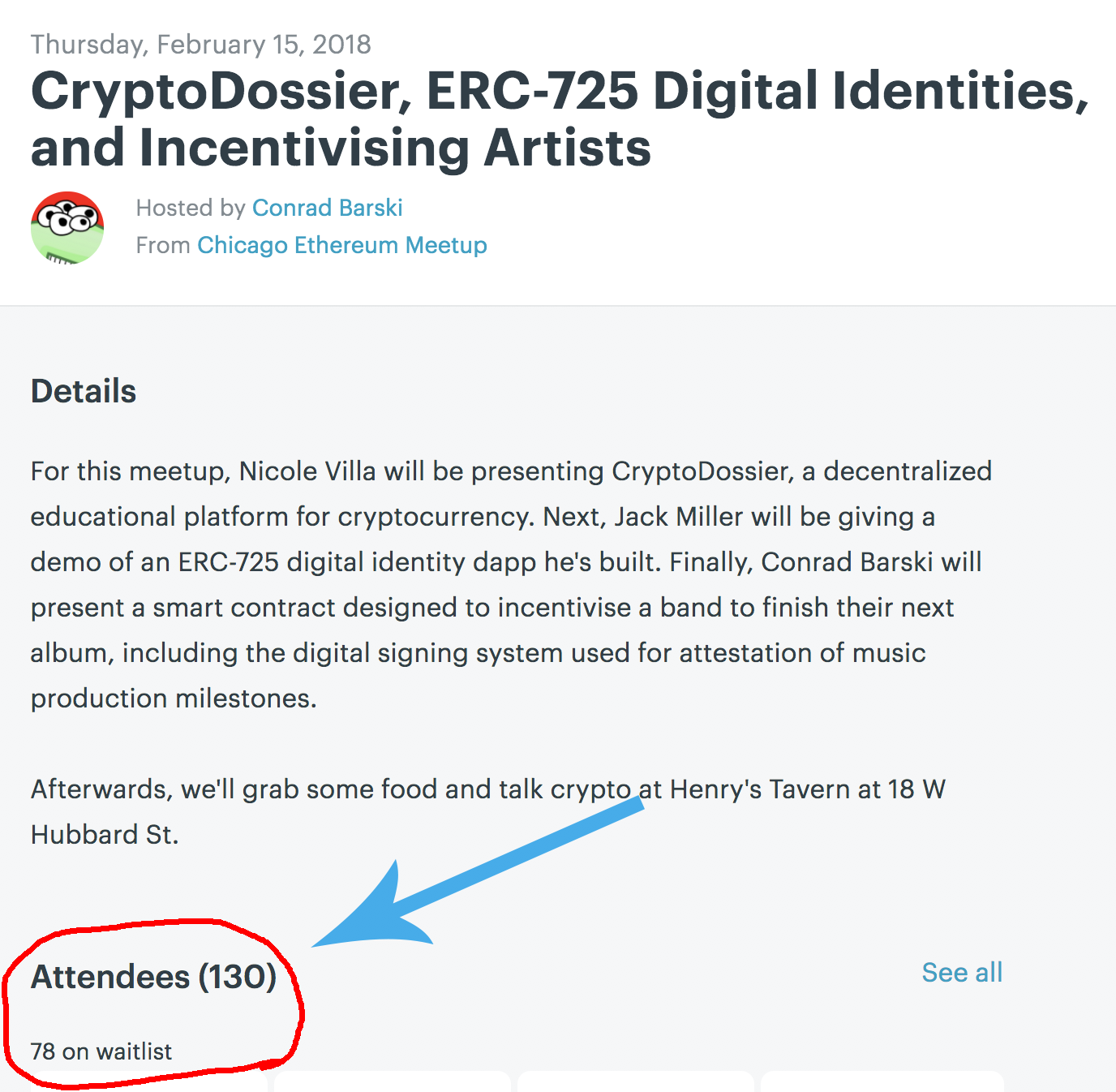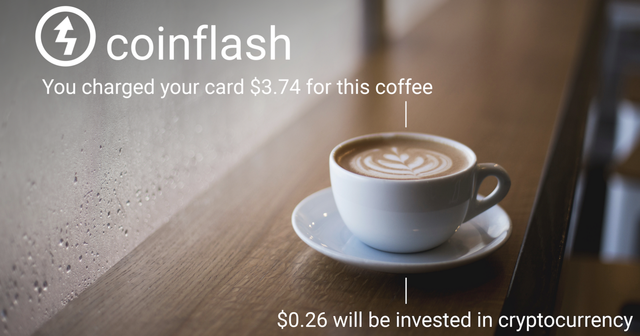How To Build A (Crypto) Startup

I’m going to teach you how to do a startup for little or no money in the crypto landscape. Why crypto? It’s hot, it’s emerging, it’s growing, there’s a lot of money in it, there’s a lot of hungry early crypto-adopters. Things will be easier here than if you pick say the roller skate bearings or steam engine industry. Not doing a crypto startup? That’s cool, these strategies should still apply to you.
Who am I? I’m Lou, I built Coinflash, an app that invests your spare change into crypto. Coinflash has been covered by Mashable and Lifehacker and we have 15,000 users. In later blog posts I’ll cover how I used the techniques below to launch Coinflash. Are you ready to do this? Got your ICO idea that’s going to democratize and disrupt the _____ industry? Okay, Lets change the world!
Audience + Product = Startup
Before we talk about your 6 billion dollar token launch, we have to cover some basic startup ingredients. Building a startup requires two parts: 1 part audience and 1 part product. Crypto product or not, you need these two ingredients for a startup. The good news is that the crypto community is starving for products and content. It’s a fertile ground for makers like us. You’ll have to look no further than the growth in cryptocurrency sub-reddits, telegram groups or the number one app on the app store to know that cryptocurrency has a starving, active audience.
What comes first? The Product or the Audience? You can’t have one with out the other and each is not equally important. A product is required but you can’t sell it without an audience. Also, an audience ≥ product. Why? A super loyal audience will buy anything, even inferior products. Have you seen Star Wars The Phantom Menace? I have twice. What about the new overpriced Macbook Pro with the useless touch bar and no USB ports? I pre-ordered it.

What kind of person are you?
Do you run a crypto Facebook group for beginners? Do you host a monthly Meetup about ERC-20 ICO’s? Are you someone who has a large following on twitter as @cryptocolon69? Then you know how to build audiences. You will need these people when you launch your product. You will need these people when you validate your problem and you sell them a solution.
On the other hand, are you someone who only logs into Twitter to change your password when it gets hacked? Do you only use Facebook to check in on your x girlfriend? Do you think reddit is a stimulant like Ritalin or Aderall? Then you are a maker. You will have to force yourself to put your self and your product out into the crypto community. Good news! Everyone is super cool and welcoming. There is the occasional troll and pretentious solidity programmer, but most people are willing to try out your product and give you ideas.
You will begin to talk to random people around the planet. You will make friends, you will ignore trolls, you will learn that social media is a powerful tool of the indie-hacker. It’s powerful because it’s you thats advertising your product, not a marketing specialist. So when customers want answers they will ask you. You will build products around their requests. We’ll get to how to do that later.

Become Dangerous
Are you a maker or an audience builder? Ideally, you are both, and if you are or can train yourself to do both, then this makes you dangerous. A deadly assassin in the wild startup-west.

We should all aspire to this: to be makers and marketers. But 99% of us are mortal, we have jobs, we have families, we play Overwatch for hours, we can’t do it all. So you might need to spend a little bit of money or to team up with a co-founder that compliments you. If you are a coder, help people that are good audience builders in the crypto space, they’ll help you later. If you are an expert connecter and audience builder that thinks Javascript is instant coffee with artificial sweetener, then you should…
Learn How To Code
The secret to doing startups on your own, for little or no money requires that you know how to code. If you don’t know how to code and don’t want to learn it, you will most likely have to pay someone to do it (finding tech co-founders is impossible), but why would you want to pay for something that will most likely not be used (90% of startups fail). At least if you code it, you learn how to code. This is worth something, right? This is a calculation you’ll have to make, how much is your time worth? Is it worth less to pay a coder? Then you might want to outsource and I’ll talk about some resources and tips on how to do that later.
In other industries, the tools used to build cost $. To build a house, you need to pay for the drywall, concrete and specialists. You have to be outside. It’s exhausting. To build a software product, all the tools are available online for free, and you can do it from your bedroom. All the coding education is available online for free. You can download all the compilers for free. There are lots of libraries that do lots of work for you for free. And lots of people have already solved your coding problems for you, for free. I’ll get to those tools and tips later.

The 6 Startup Commandments
Audience + Product = Business
If you don’t have one, you need the other.
Fail Fast With A MVP
How fast? 3 months is a good amount of time you should give to launch any product. You do not want to be working on something for 3 years only to learn on the day of your launch that nobody will pay you for it and nobody will try it. Hell, you can’t pay people to use it. Your only customer is your mom and it crashes her computer every time she launches it. If your idea can’t be built in 3 months, think of something else.
It’s not that failure is not an option, failure is sometimes the only option. You have bad ideas. These ideas have to be executed for you to learn they are bad ideas. These ideas will keep you up at night until you prove to yourself that nobody cares about this idea and nobody will give you money for it. So unfortunately (fortunately?), you have a duty to follow through on your ideas to some level to at least prove to you what’s wrong with it. This is how you learn. It is your duty as an entrepreneur.
Failing hurts. The market doesn’t give a crap about your feelings. It speaks with it’s $. Become desensitized to failing. Make failing habitual. Fail so many times that it’s like brushing your teeth. Make it a goal to have 10 failures by the end of the year. Last year, I wanted to have at least 5 failed Github projects in my repo by the end of the year. It’s not that I wanted each to fail, but I knew if I could create multiple startup projects it would not only increase my chances of catching a big fish, but it would toughen me for the long, cold days on the shore with no bites. Become obsessed with failing.
MVP stands for minimum viable product. It’s the most basic thing you can build to sell to someone. It’s the essence of your product. It’s a test of your business: will people pay you for your product? It doesn’t have to be built on code. It doesn’t even have to be automated, it just has to prove your solution. MVP’s force you to pair down your product to it’s essence. Because maybe, just maybe, you don’t need your site to be a holographic representation of the Ethereum blockchain. Maybe it will work with just text? Think craigslist: it just works. Your product just has to work.
Don’t Pay For Marketing
If you pay for marketing in the beginning, you will have no idea if you could have gotten traction with out it. You will have to continue to pay for it to sustain your growth. So you have to hope you are making enough revenue from the beginning to pay for it.
Everybody hates marketers. The best marketing is organic, it can be very effective. This is the kind of marketing you will do. It can all be done for free by yourself. And this content lives on the internet forever. I’ll cover all the channels and major players later in relation to crypto, there’s a lot and you’ll want to be active on all of them so you can connect with your audience, validate your problem, validate your solution and build a business.
Oh yeah, and sell yourself. You startup maybe dead in a month but your personal brand can be reused again and again. Sell your product but also always sell yourself.
Code (Smart)
If you know a programming language, try to build your product in that language. Learning a new language while building a product is really hard. So you’ll want to build your application in whatever language you are comfortable with ideally.
Try to use API’s and libraries. They will reduce the amount of work you do tremendously. Most are totally free. I use five API’s in Coinflash: Coinbase, Shapeshift, Plaid, Facebook and Google. I offload as much that I can to API’s to limit the amount of code I have to write. More on API’s later.
Find libraries when you need them, most are free. Have to build a graph for your application? Use a library, don’t build graphs from scratch. Find solutions that will save you time that get the job done. You can work on improvement later. Move fast and make sure you…
Launch
I know, right? That’s like saying ‘to play basketball you have to jump’, but I’ve had quite a few projects I never launched. What does it mean to launch? Launching is a concerted effort you make to get people to pay you for your product. You have to put the product in front of their face and say pay me. If you can’t get them to pay you, get them to use it. If you can’t get them to use it, get them to give you their email and promise them something better later. If you can’t get that, forget it.
A failed launch is great! It tells you nobody wants your product. Awesome, you can move onto something else and stop wasting your time. A launch that never happens is frustrating. You have no idea what your customers would have thought about your project and you learned nothing about your customer. You can’t iterate on a product you never launched. Launch your application even if you think no one will use it. You know, you could be wrong but you are probably right. And when nobody uses it, you gain valuable information. From there, you have options: iterate or move on.
Charge From The Beginning
It’s not a business if you don’t make money. You can’t sustain it if you don’t make $. Charge from day 1. Don’t say you’ll get users and then you’ll charge. You are building this on your own. You need a way to make money from the beginning. You are not interested in projects that don’t make money. Limit your ideas to monetizable ideas so you know when they hit you can at least pay yourself.

Stay tuned to my other posts where I’ll walk though the steps you’ll need to take to launch your crypto startup and the tools you can use to get there. Download Coinflash, it’s also on the iOS App Store and the Play Store. Follow Coinflash on twitter or hit me up to talk crypto.